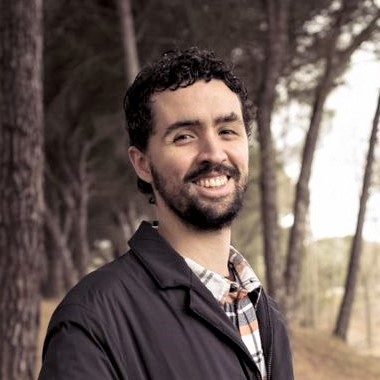Gabriel Pérez Callejo
| AREA | RESEARCH GROUP | INSTITUTE |
|---|---|---|
| Optics | Plasma and Supersonic Jet Spectroscopy Group (GEPCS) |
I graduated in Physics at the University of Valladolid. After finishing my undergraduate studies, I joined the University of Oxford, UK, where I obtained a PhD in Atomic and Laser Physics in collaboration with the Lawrence Livermore Laboratory in the USA, where I specialized in spectroscopy of plasmas under inertial confinement nuclear fusion conditions.
After completing my PhD thesis, I continued working at the University of Oxford, this time as a postdoctoral researcher. In 2020 I joined the Center for Intense Lasers and Applications (CELIA) in Bordeaux, France, also as a postdoctoral researcher. There I worked mainly on X-ray interferometry for plasma diagnostics, and on magnetized implosion diagnostics for nuclear fusion.
In January 2022, I joined the Plasma Spectroscopy and Supersonic Jets Group at the University of Valladolid as a Margarita Salas Postdoctoral Researcher, within the University Faculty Retraining program. Since September of the same year I work as Assistant Professor at the Department of Theoretical, Atomic and Optical Physics.
I study the behavior of matter in high energy density experiments using intense lasers. In these experiments, temperatures of several million degrees are reached, whereby electrons are separated from the nuclei of atoms and matter becomes plasma. The light emitted by these plasmas, mostly composed of X-rays, provides us with a lot of information about their temperature and density, as well as the distribution of populations of atomic states (among others). This information is fundamental to understand how matter behaves in the extreme conditions reached in nuclear fusion experiments, as well as in multiple astrophysical phenomena.
My vision is to understand the mechanisms that affect nuclear fusion in order to optimize its performance. Nuclear fusion is one of the great challenges of humanity for the future, and a deep understanding of the behavior of matter under the relevant conditions is fundamental to advance in that direction.


